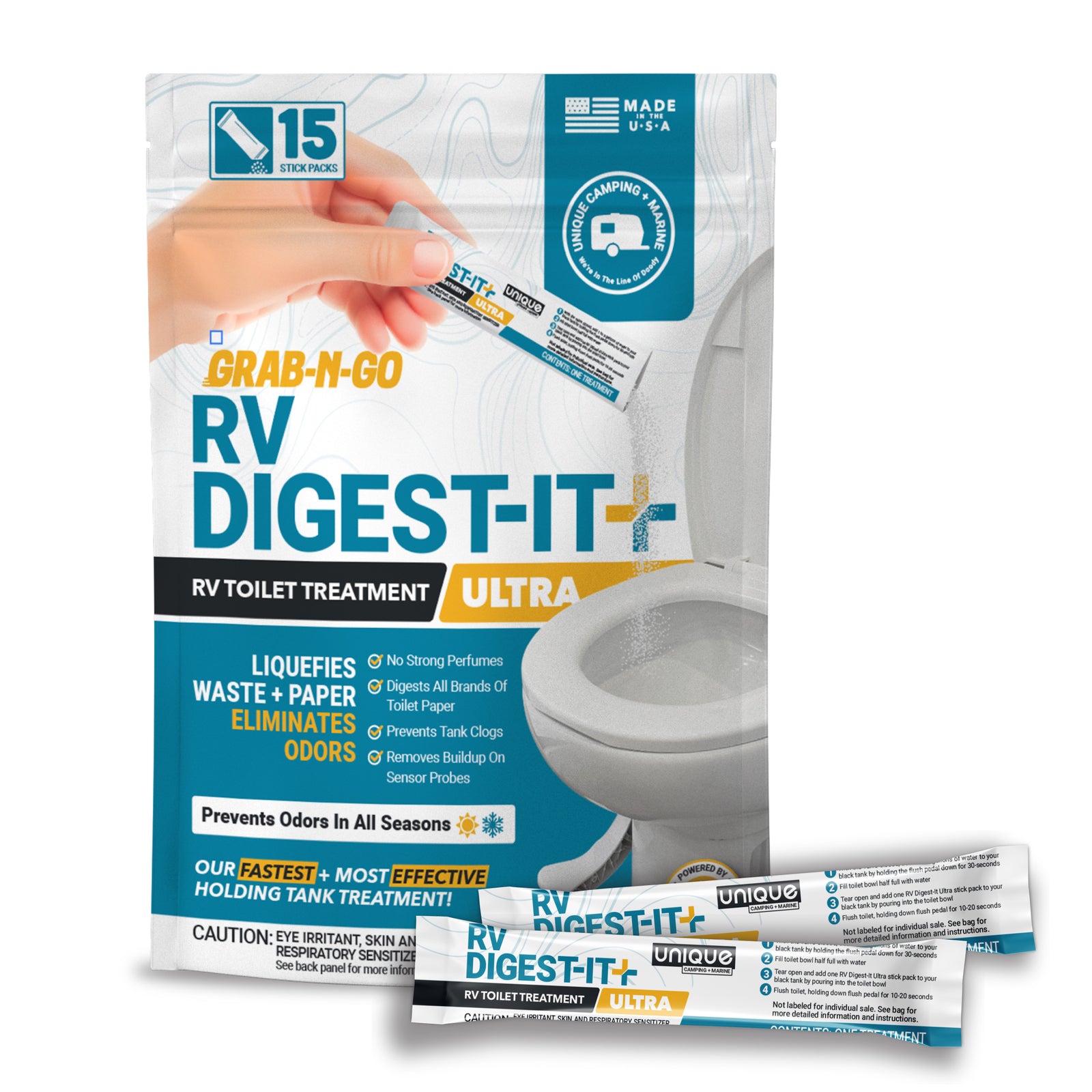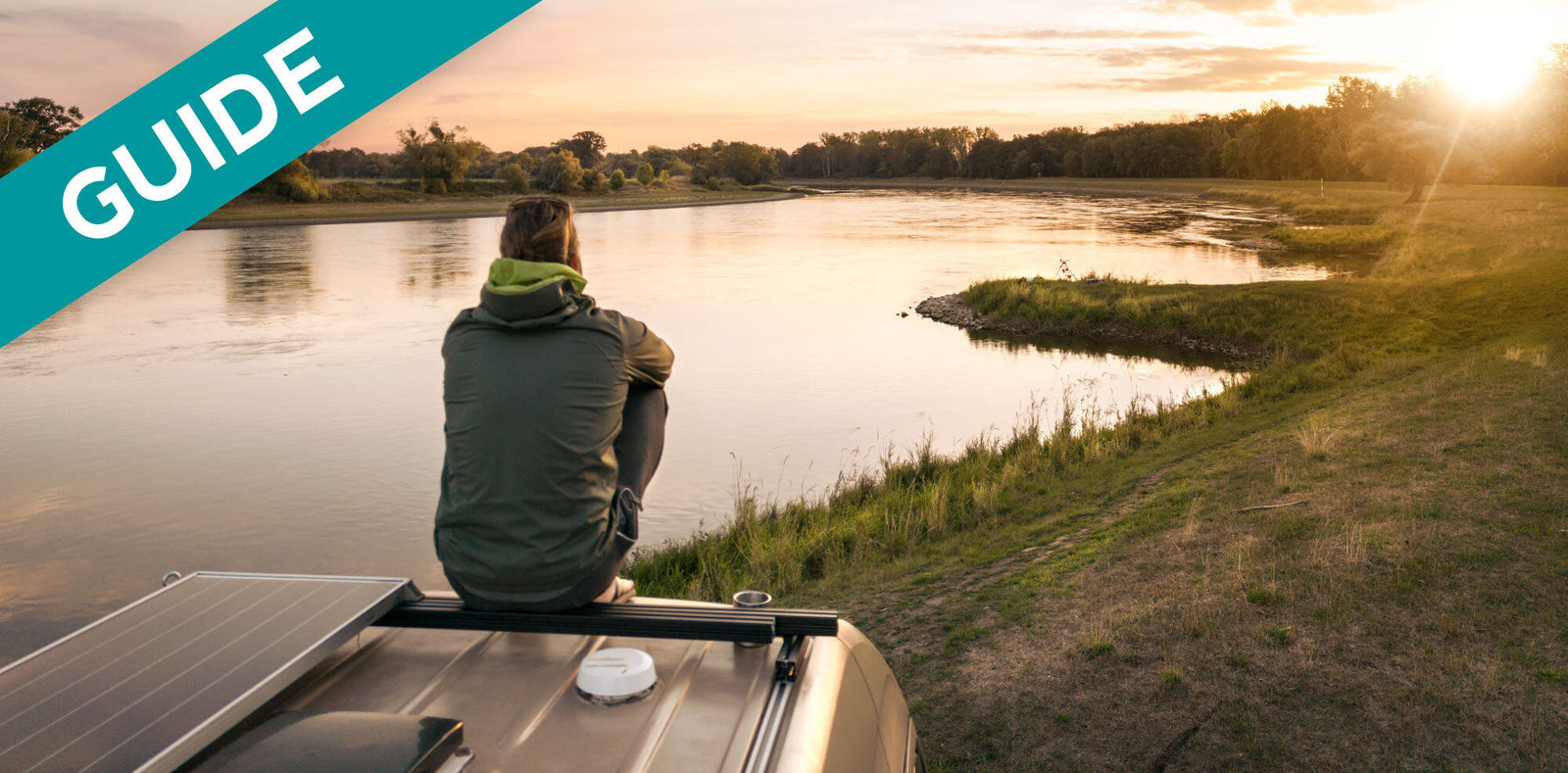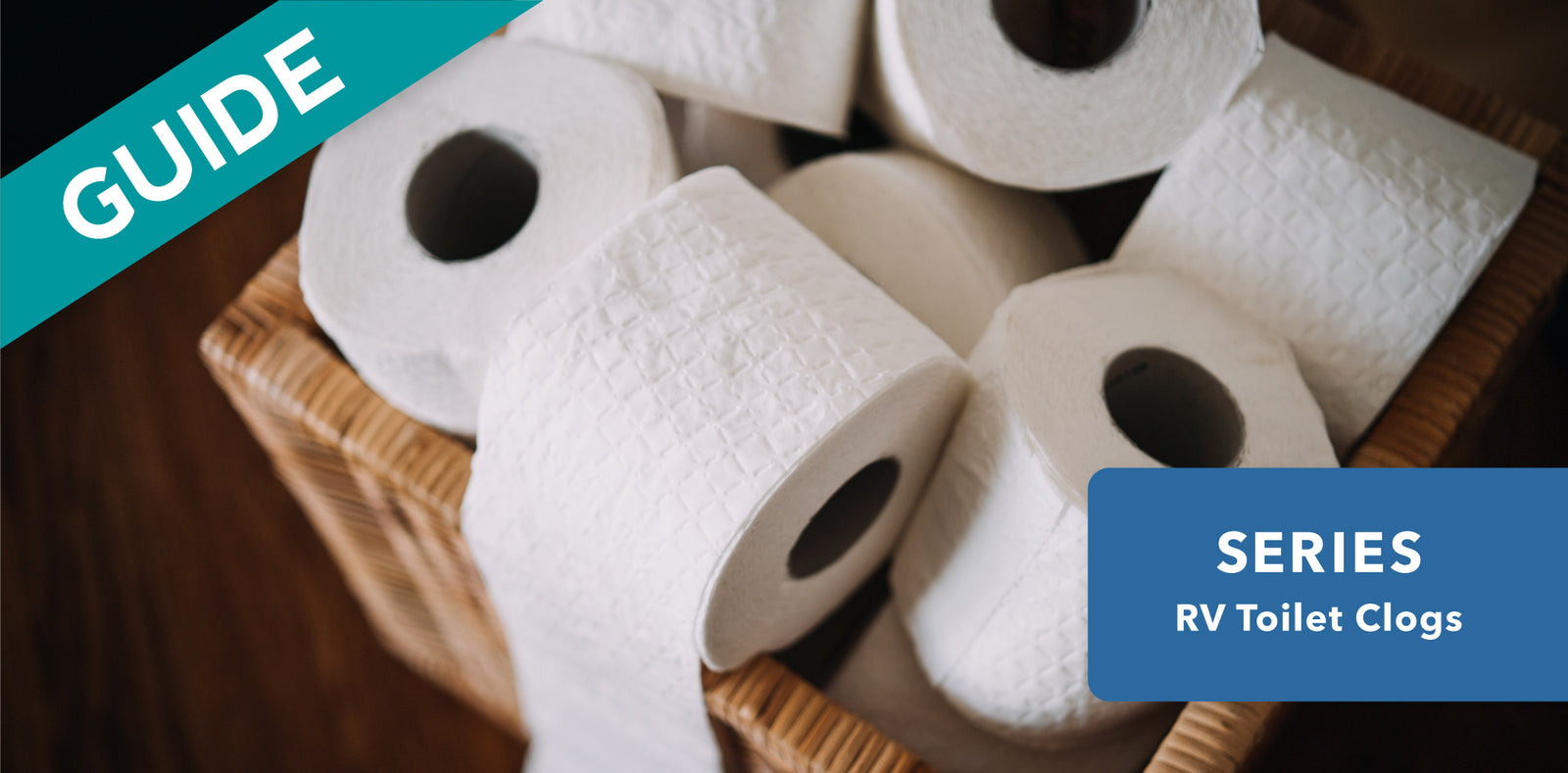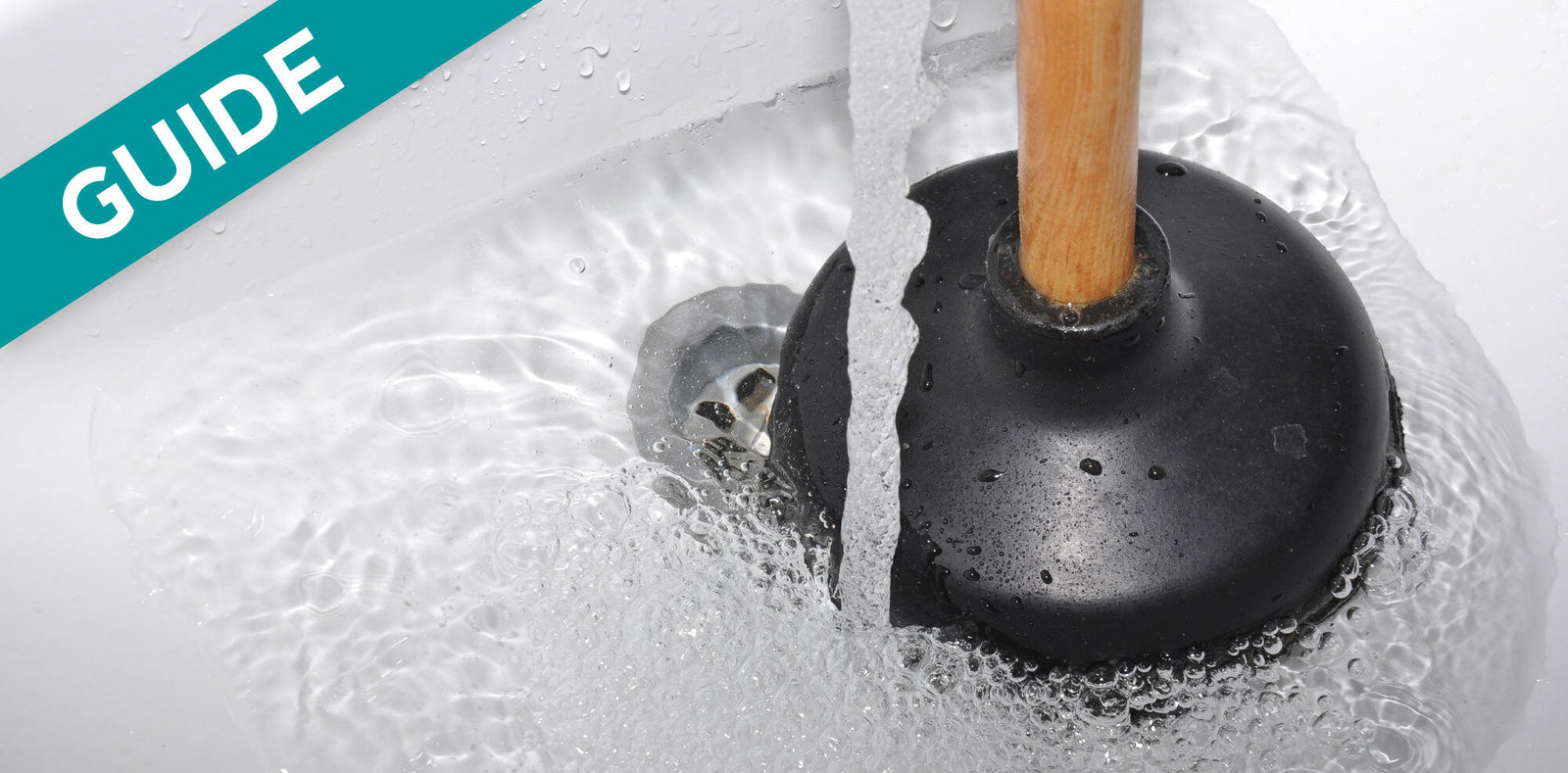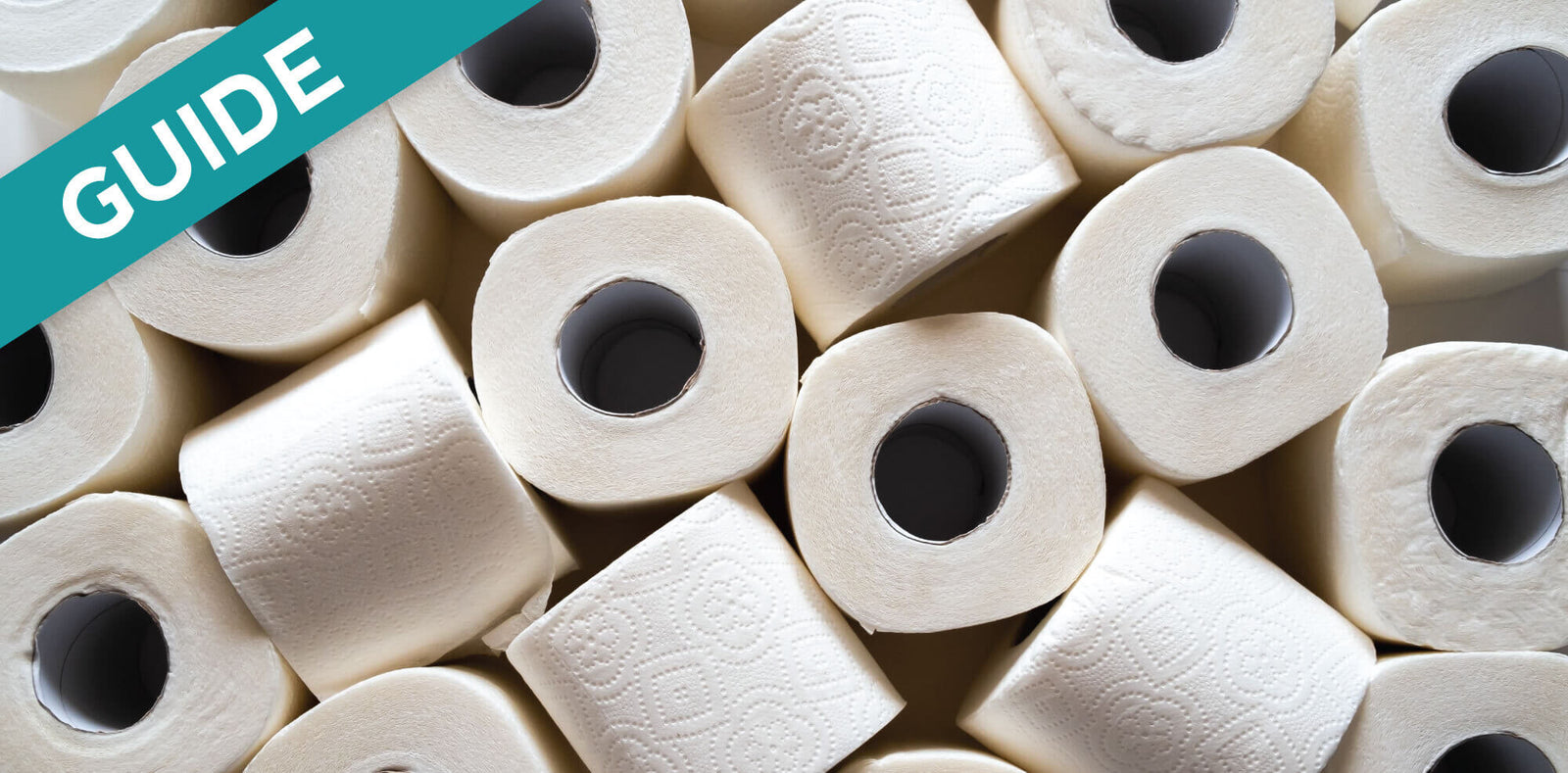
Clogged RV toilets and black water holding tanks are one of the leading issues that RVers deal with on a regular basis. Clogs are frustrating and messy, and the vacation-killing, dirty work associated with them are just as unpleasant and gross. In fact, clogs are one of the main reasons that some travelers abandon the camper lifestyle altogether.
Fortunately, preventing these issues is actually very simple. In this guide we are going to explore what types of clogs may occur in your black water holding tank, and what easy habits you can use to prevent them.
Key Points About Preventing RV Toilet Clogs
- There are three main types of clogs that can occur in your RV toilet or black water tank: pyramid plugs, compacted tanks, and blocked toilet lines.
- Misreading sensors may sometimes lead you to believe you have a clog, where there actually isn’t one.
- Following the easy-to-follow steps of The Unique Method is all you need to prevent 99% of RV wastewater problems.
Three Most Common RV Toilet Clogs
If you’re dealing with a clog in your RV toilet, one of these three types of clogs is likely the culprit: pyramid plugs, compacted holding tanks, and blocked black water plumbing. We’ll provide details about each of them to help you understand what type of clog you may have.
1. RV Pyramid Plugs

Pyramid plugs, or poop pyramids, are clogs that generally develop over longer periods of time as waste and toilet paper build up into a pyramid-like shape just below the RV toilet line. If left untreated, the pyramid can grow so large that it blocks off the pipe from the toilet to the black water tank, preventing the toilet from flushing properly.
Pyramid plugs usually occur if the black water tank valve has been left open while hookup camping, because while all of the liquid is able to flow out of the tank naturally, waste and toilet paper are left behind.
For comprehensive details about pyramid plugs, please refer to our guides: What is an RV Pyramid Plug? and How to Get Rid of an RV Pyramid Plug.
2. Compacted RV Black Water Tanks

Compacted tanks are clogs where solid waste has accumulated in the bottom of your black water holding tank, preventing liquid and waste from exiting the tank when the black water tank valve is opened.
The most common causes of compacted tanks are not using enough water in your black water holding tank, not using a high-quality, waste-digesting treatment, leaky discharge valves, or most commonly, leaving waste sitting in your tanks while the RV is in storage.
For full details about compacted black water holding tanks, we recommend reviewing our guide: How to Unclog a Compacted RV Black Tank.
3. Blocked RV Toilet Lines

Blocked RV toilet lines, or clogs in black water plumbing systems, occur more quickly than other types of clogs. These clogs happen as waste and toilet paper create a blockage as they move through the narrow plumbing pipes.
The most common cause of clogs in RV toilet lines is flushing too much toilet paper and waste, with not enough water. This problem can be exacerbated by long distances of pipe – particularly if the toilet isn’t positioned directly above the black water holding tank, meaning waste and toilet paper have to travel through joints and elbows in the black water plumbing system.
For a deep dive into clogged toilet lines and black water plumbing systems, read our guide: How to Unclog a Blocked RV Toilet Line.
Misreading Sensors & RV Toilet Clogs
Sometimes, holding tank sensors that become caked with waste, toilet paper, and debris (black water tanks), or grease and oils (gray water tanks), can misread and lead you to believe that you have a clog.
For example, misreading sensors may tell you that the black water tank is full, but then nothing comes out when you open the black water tank valve. This could signal that you have a compacted black water tank, but it could also mean that you simply have an empty tank with sensors falsely reading that the tank is full.
Additionally, sensors can also misread as a result of physical or wiring damage. In these instances, the sensors may indicate the tank is empty when you know that your tank is partially, or completely, full.
In some situations, it is even possible that you’re dealing with a clog and misreading sensors at the same time.
Fortunately, resolving these issues is relatively easy. For help with misreading sensors, reference our guide: How to Clean and Restore RV Holding Tank Sensors.
How to Prevent RV Toilet Clogs: The Unique Method
Hands down, the best way to prevent RV clogs and wastewater issues is with The Unique Method.
Developed over 30 years of professional RV wastewater treatment experience, The Unique Method is tried, and tested, to provide RVers with problem-free holding tanks. While no solution works like magic, following the simple methods outlined in The Unique Method allow you to break down waste, eliminate odors, and prevent sensor probe problems, simultaneously.
The key components of The Unique Method are twofold: 50% is following the right Process, and 50% is using the right Products. We always recommend using Unique Camping + Marine Products as part of this proven process, because they are specifically formulated with The Unique Method in mind, providing you with the best-possible results.
RV Black Water Tanks: Clog Prevention Tips
In the following sections, we will highlight 8 of the key techniques that will help you prevent the most common camper clogs, all of which are included in The Unique Method.
Follow along and learn how to avoid RV clogs before they happen.
1. Keep Your RV Black Water Tank Valve Closed
One of the most significant misnomers in the RVing community is that you can leave your black water tank valve open while hookup camping and everything will flow out of the tank and into the sewer, problem-free.
Unfortunately, leaving your black water tank valve open is one of the fastest ways to develop a clog.
When you leave your black water tank valve open, liquid inside your holding tank drains out as expected, but toilet paper and waste are often left behind. Over time, this solid waste builds up on top of itself and can cause a pyramid plug. Poop pyramids can grow so large that they eventually prevent anything, even liquid, from entering the tank.
Many RVers don’t know that their black water holding tank is generally flat across the bottom, meaning that if solid waste is added to a tank devoid of liquid, it will simply land on the bottom and continue to pile up in the same spot.
Caution: You may be one of the lucky campers that has left your black water tank valve open and have never experienced any issues. But after working with hundreds of RVers to address clogs, we can confidently tell you that it’s only a matter of time before your luck runs out. We strongly recommend that you change this practice while you’re still ahead!
Guide: Why It’s Crucial to Keep Your RV Black Water Valve Closed
2. Use High-Quality, Bacteria-Based RV Black Water Tank Treatment
To prevent RV clogs, you want all of the toilet paper and waste inside your black water tank to be nearly, if not completely, liquified. The best way to accomplish this is to regularly use a high-quality, bacteria + enzyme based holding tank treatment, like Unique RV Digest-It Plus Ultra.
Extra strength bacteria- and enzyme-based products, like Digest-It Plus, work extremely well because aerobic bacteria break down waste into near liquid form without leaving behind residue and byproducts, and without adding odors. In fact, this type of product pushes out the foul-smelling bacteria that come with solid waste.
While there are other tank treatment products available, we highly recommend you prioritize bacteria-based products, simply because they are so effective at keeping your black water holding tanks clean and fresh.
Caution: When using a bacteria- and enzyme-based treatment like Digest-It Plus, make sure to keep your black water tank valve closed until you’re ready to dump a full tank. If you leave the black water tank valve open while on hook-ups, your tank treatment will simply flow down to the sewer as if you never used a tank treatment at all.
Guide: Why You Should Use a High-Quality Waste Digester in Your RV
3. Avoid Chemical Cleaners & Antibacterial Dish and Hand Soap
If you decide to use bacteria- and enzyme-based tank treatments, like Unique RV Digest-It Plus Ultra, using chemical toilet bowl cleaners, shower cleaners, or antibacterial dish and hand soap will counteract the tank treatment you are using.
Why? Because these products will kill the beneficial, waste-digesting bacteria that you’ve added to your tank. If you damage, or kill, the helpful bacteria by using chemical cleaners, it can easily lead to clogs because the bacteria won’t be able to break down the waste as intended.
Caution: Harsh chemical cleaners can also damage RV valves and seals, so do your homework before using them in your RV.
Guide: Why Are Bacteria and Enzymes Good for Your RV Holding Tanks?
4. Use Lots of Water With Every RV Toilet Flush
Water, it’s one of the best things you can put in your body, and as it turns out, it’s also one of the best things you can put in your RV wastewater holding tanks. Even if you don’t use tank treatments, being generous with water in your black water holding tank can still help prevent clogs from developing.
The easiest way to add more water to your black water tank is to simply hold down the flush pedal for at least 10 seconds every time you flush.
Benefits of adding extra water to your black water holding tanks:
- Prevents pyramid plugs and compacted tanks by softening the waste so that it dips below the water line and cannot cling to the walls and floor of the tank.
- Adding water to the toilet bowl before you use it, and after every flush, acts as a vapor barrier, blocking odors from the black water tank and preventing them from reaching the rest of the RV.
- Hot tanks are the leading cause of stinky black tanks and fresh water will cool down the tank, helping eliminate odors.
- Waste-digesting, aerobic bacteria in tank treatments, like RV Digest-It Plus Ultra, need water to both survive and to reach all of the waste they will break down.
Guide: Why Using Lots of Water in Your RV Toilet and Tanks is Crucial
5. Keep Temperatures Regulated in RV Black Water Holding Tanks
High-quality, bacteria- and enzyme-based holding tank products work best within a moderate temperature range of 45-85°F [7-29°C]. When temperatures reach extreme highs and lows, all brands of bacteria-based holding tank treatments will struggle to work.
Additionally, hot temperatures dramatically increase odors, as high heat can cause the bacteria to become sluggish and not digest waste as effectively.
If you’re camping in extreme environments, we recommend the following:
- Cold Weather – Below 45°F: Insulate or heat your tank to keep black water holding tanks from freezing.
- Hot Weather – Above 85°F: Increase your water usage and consider adding higher doses of bacteria treatments to keep black water tanks from overheating and producing unpleasant odors.
6. Rinse RV Black Water Holding Tanks After Each Dump
Every time you dump your black water holding tank, flush or rinse it thoroughly to help clean out the nooks and crannies of the tank. Taking this extra step will ensure that no residual debris stays behind waiting to create a future clog.
Rinsing is important, because wastewater tanks use gravity to dump, meaning there are always residual waste particles stuck to the walls as the waterline slowly decreases. Imagine draining dirty dishwater down the sink drain — yes, most residual food particles go down the drain, but there are always stubborn bits of food, debris, and grease that cling to the edges of the sink.
Similarly, if you do not rinse your black water holding tank each time you dump, small amounts of waste can accumulate over time, eventually leading to sensor misreading and waste buildup on and around the tank floor and discharge port.
Guide: How to Flush Your RV Holding Tank
7. Regularly Deep-Clean RV Black Water Holding Tanks
Regularly deep cleaning your black water tank is important because keeping the holding tanks clean and free from build-up is key to preventing foul odors and clogs in your RV. Deep cleaning your black water holding tanks fully resets them, and ensures they’re completely free from waste – giving you that extra level of clean you simply can’t achieve through regular treatments and rinsing.
We recommend deep cleaning your RV black water holding tanks based on your usage:
- Recreational campers and weekend warriors: Deep clean twice a year, usually once at the beginning of the RV season and once at the end.
- Full-time RVers: Deep clean after every 10 dumps, or every 3-4 months.
Thankfully, deep cleaning RV black water holding tanks is easy and straightforward, even for full-time RVers who need to continue using their tanks during the cleaning process.
Guide: How to Deep Clean RV Black Water Holding Tanks
8. Never Store Your RV With Waste in the Black Water Holding Tank
Storing your RV with waste in the tank is the most common way to create a compacted tank.
While you may have taken all the steps to keep the waste liquified during your trip, when you store an RV for long periods of time, the water in the tank will eventually evaporate (or leak out of faulty tank valves) and leave dried waste and toilet paper behind. The solid waste will harden along the bottom of the tank and block the discharge line, making it impossible to dump later.
The best policy is to dump at a station on your way home, or immediately upon your return, so you don’t accidentally forget about it and have to deal with a compacted tank during your next trip.
Guide: How to Prepare Your RV Holding Tanks for Storage
Review: Preventing RV Toilet Clogs with The Unique Method
The best way to prevent camper clogs safely, easily, and consistently is with The Unique Method. Specifically designed with easy-to-follow steps, this process has been proven to help RVers get the most out of their camping experiences.
Applying the right process (The Unique Method) and using the right products (High-Quality, Bacteria + Enzyme Based Products) will prevent the majority of your problems before they occur, allowing you to enjoy your RVing adventures, clog-free.

Clogged Toilet? We Can Help!
We've helped thousands of RVers unclog their toilets and tanks and we can help you too! Whats better is that we have all the tips and tricks we've used over the years organized in one easy, free downloadable PDF!
Get The Free Download
